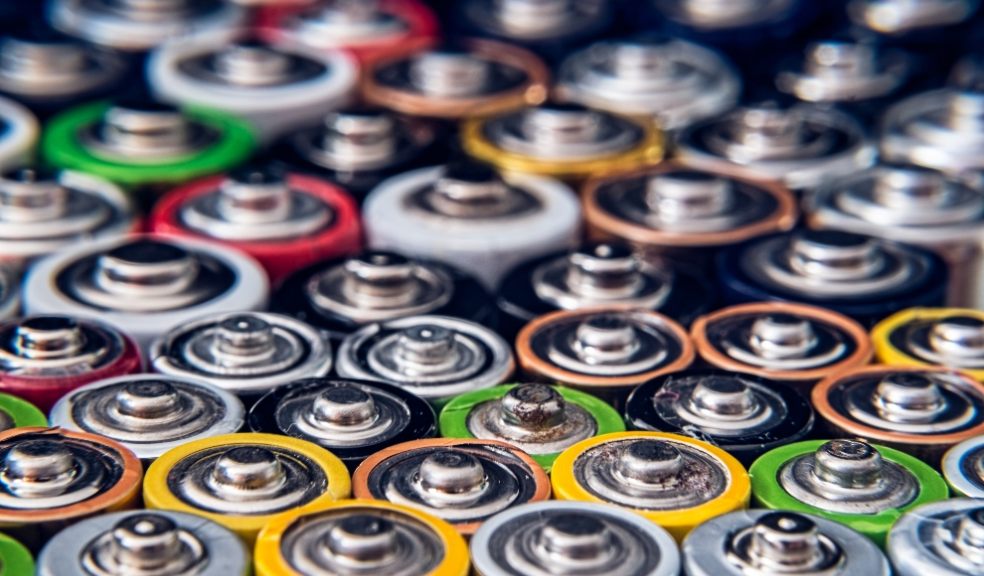
Brits throw away 600 million batteries each year
Batteries can be found all around the house, from inside your TV remotes to powering your children’s toys – but do you know what to do with them when they run out?
Although there are recycling schemes in place, many still end up at landfills creating problems for the environment which can cost local councils a small fortune to fix.
Waste collection specialists BusinessWaste.co.uk are calling for a ban on products that have been manufactured without rechargeable batteries, to reduce the amount of hazardous battery waste being incorrectly thrown away.
“Technology is constantly advancing, but we still seem to heavily rely on batteries to power items around the house,” says BusinessWaste.co.uk spokesman Mark Hall.
“And after all these years of battery power, people still can’t throw them away correctly. Something needs to change.”
Running out of power
With the UK throwing away around 600 million batteries each year, BusinessWaste.co.uk conducted a survey of its customer base to find out exactly what people were doing with their old batteries.
Key poll findings include:
- 40% of Brits have never recycled their batteries, with many saying that it was because it was too much hassle.
- Over half of people surveyed admitted to hoarding a stash of batteries at home and were unsure if they were used or unused.
- 20% of people said they were familiar with local recycling schemes such as collection points in shops, but only 4% had used these facilities more than once.
- A third of people admitted to throwing batteries into the bin, and 75% of them didn’t know about the environmental damage this could be causing.
- A quarter of people surveyed didn’t know batteries could be recycled at all.
- Only 10% of people said they had used their kerbside battery recycling scheme at some point.
“Many people don’t believe it’s actually possible to recycle batteries, so just chuck them away when they’re done with them,” says Mark Hall, “or worse, they know they can be recycled but see it as too much hard work.”
With every person in the UK using on average 10 batteries a year, it’s easy to understand how 20,000 tonnes worth annually end up in landfills - and this is why BusinessWaste.co.uk is calling for products to now be made with rechargeable batteries.
“If we can ban the manufacturing of products that require batteries, over time we can significantly reduce the amount of batteries that get thrown away,” says Mark Hall.
“This is why rechargeable products are the best solution for the future.”
Time for a recharge
Although it might seem odd banning products with non-rechargeable batteries, there are plenty of items around the home that we are used to regularly charging, such as your phone, laptop and electric toothbrush.
“By banning products with non-rechargeable batteries, it means that manufacturers will have to look at other means of powering their goods,” says spokesperson Mark Hall, “and the technology needed is already out there.”
You may think that powering up rechargeable batteries will send your electric bill through the roof, but in fact recharging them with a mains charger is much more energy efficient than buying new batteries all the time.
“It will cost you far less to charge up a battery-powered product than to go out and buy a new packet of batteries,” says Hall, “and all the good brands these days cost an arm and a leg.”
Switching to rechargeable products can not only be better for your wallet, it also has huge benefits for the environment too.
When batteries end up in landfills, over time the casing corrodes, and the chemicals inside leak and poison the soil and the water supply, and the chemicals could cause reactions resulting in hazardous fires.
Mark Hall says that with the evidence of environmental damage alongside a lack of knowledge of safe disposal, it’s surprising that products are still allowed to be manufactured without rechargeable batteries.
“If we can charge our phones when we need to, then what’s the difference with charging up your kid’s toys or having a charging dock built into TVs for the remote?”
“We all have the power to make a change.”













